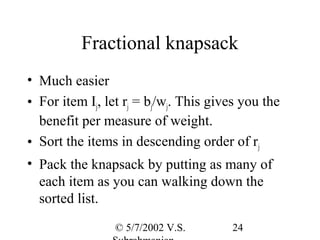The document discusses the knapsack problem and provides examples to illustrate the recursive solution approach. It describes the knapsack problem as selecting items to place in a knapsack with a weight capacity to maximize the total benefit without exceeding the weight limit. It shows that the optimal solution can be found using a recursive function f(w) that returns the maximum benefit for a knapsack of weight w. The examples demonstrate computing f(w) values to find the optimal solutions for sample knapsack problems.
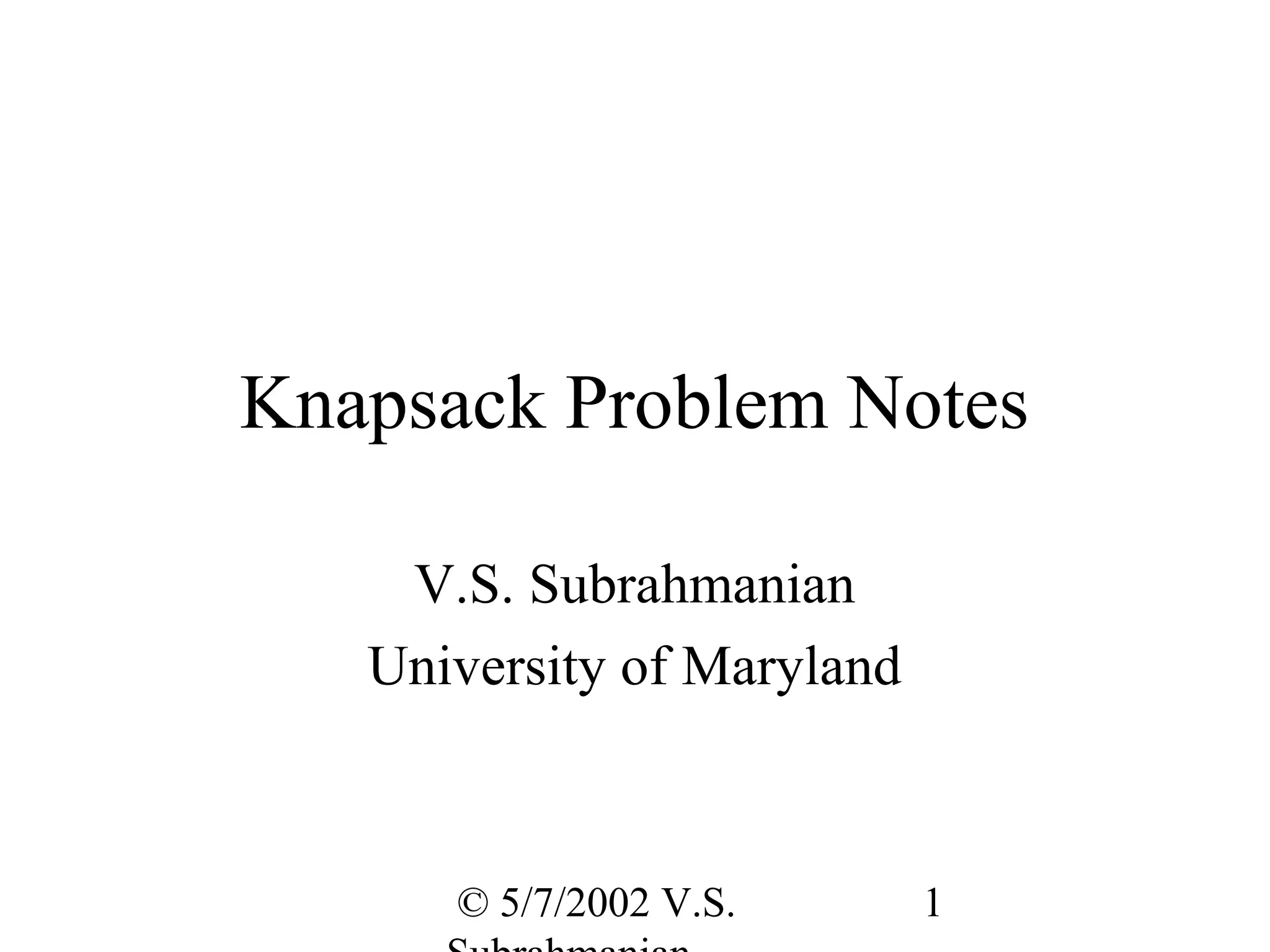
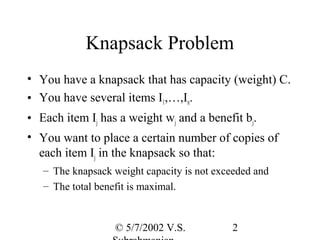
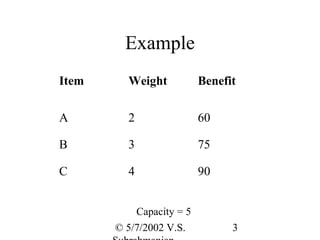
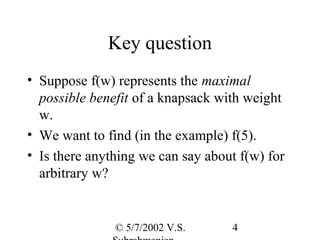
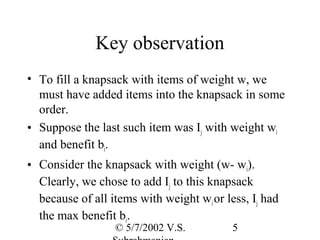
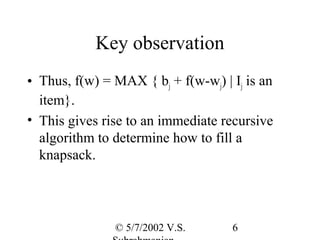
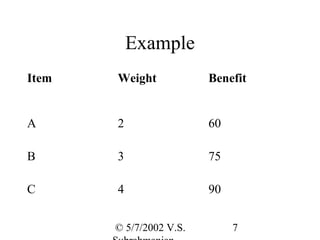
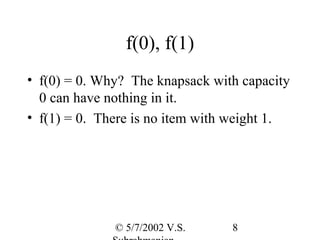
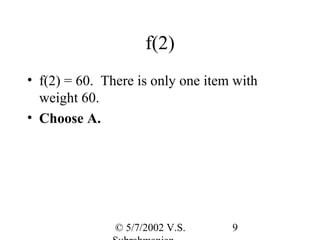
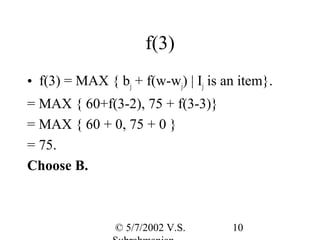
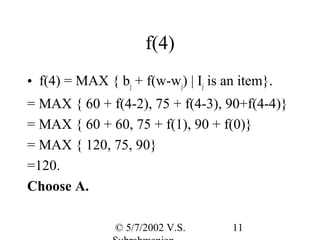
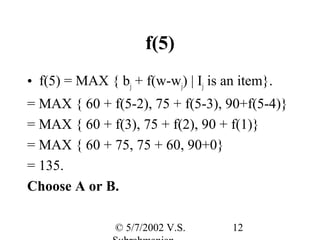
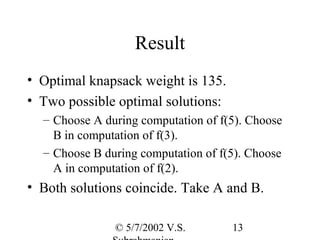
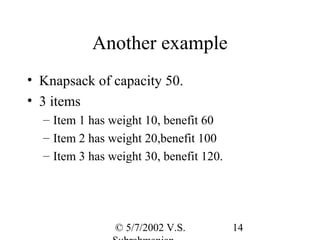
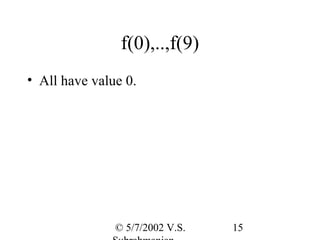
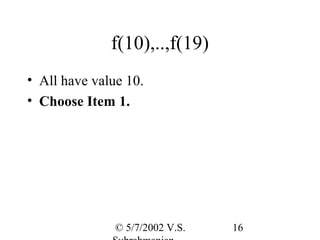
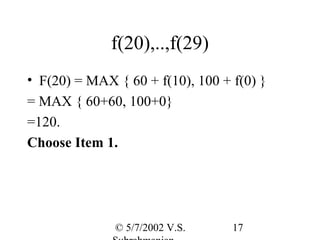
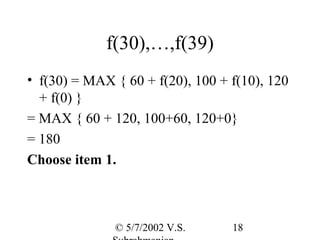
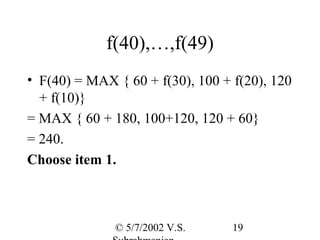
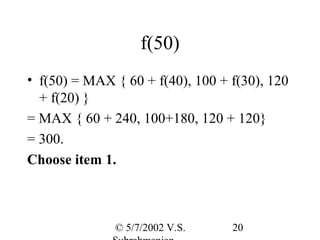
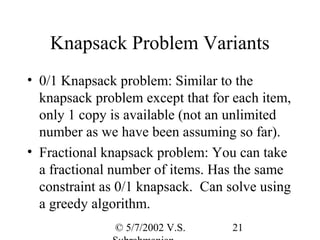
![0/1 Knapsack
• f[j,w] = best solution having weight exactly
w after considering j elements
• If j >= C: f[j,w] = f[j-1,w]
• Otherwise: f[j,w] =
Best solution after adding k-1 items
• MAXremaining items {
– f[j-1,w], Replace an item with the k’th item
– f[j-1,w-wj]+bj }
© 5/7/2002 V.S. 22](https://image.slidesharecdn.com/knapsack-121218221731-phpapp01/85/Knapsack-Algorithm-www-geekssay-com-22-320.jpg)
![0/1 Knapsack Algorithm
For w = 0 to C do f[w]=0; (* initialize *)
For j=1 to n do
for w=C downto wj do
if f[w-wj] + bj > f[w] then
f[w] = f[w-wj] + bj
O(n.C) algorithm
© 5/7/2002 V.S. 23](https://image.slidesharecdn.com/knapsack-121218221731-phpapp01/85/Knapsack-Algorithm-www-geekssay-com-23-320.jpg)
